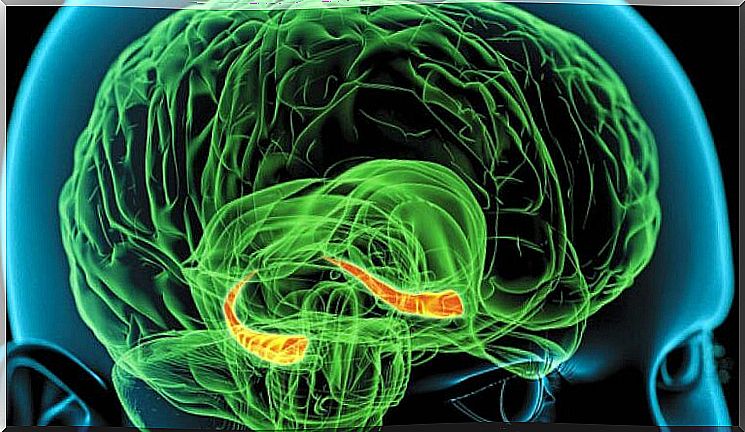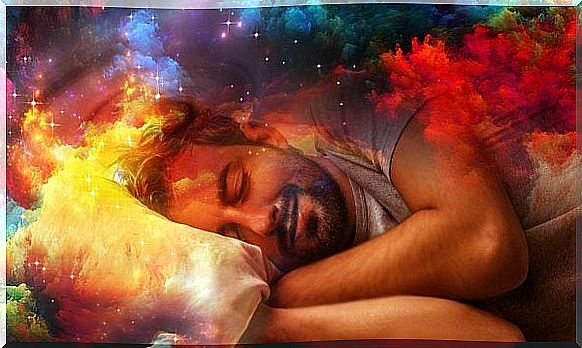Remembering Dreams: Why Can’t We?

We spend nearly a third of our lives sleeping. However, we are not always aware of what is happening in this dreamlike, foreign, fascinating and at times even surrealist universe where revealing meanings are engraved. Why does it happen? Why can’t we sometimes remember dreams?
Dalí said that failing to understand the meaning of his art did not at all mean that he had none. He affirmed this for a very specific reason: most of the works of this unforgettable painter, sculptor, writer and screenwriter were nourished by the world of dreams. Dalí was a true oneironaut, that is, a specialist in lucid dreams that he himself lived during his naps.

Why can’t we sometimes remember dreams? The answer lies in our brains
People distribute their dreams, on average, in cycles of 90 or 100 minutes, which in turn can be divided into several phases. The REM phase (Rapid eye movement, from the English Rapid eye movement) is the one in which the most vivid dreams occur, those that make us enter the most fascinating and terrifying scenarios. Where emotions and sensations are always at the skin’s edge. Likewise, it is also necessary to know that the REM phase, in addition to being the longest of sleep, is also the last. It is therefore common to wake up suddenly and remember only the last moments of this phase.
Many neurologists also argue that the “sleeping brain” has no memory. In other words, we are not programmed to store data during this phase because, apparently, nothing of significance happens that will be useful to us. If this premise is entirely true, why don’t many remember dreams while others do?
The answer is offered by a recent study from Monash University in Melbourne, Australia. This is a theory that was already enunciated in 2011 in the journal Neuron , following a series of tests that used magnetic resonance imaging.
The key lies in the hippocampus. It would seem that this brain structure related to our emotions and our memory does not allow us to keep many of the dreams we experience every night. Let’s see more data to follow.

The hippocampus and the dream world
Anyone who thinks that the brain is completely disconnected when sleeping on the sofa or in bed, is wrong. There is no complete disconnection, but energy is received in another way, so to speak. One of the last structures that passes from the conscious to the unconscious mode is the hippocampus .
This area also takes care of transmitting short-term memory information to long-term memory. Some people disconnect this area shortly after the rest, and this allows them to retain much more fragments of the dream fabric. The rest, and we are talking about 90% of people, if they do not remember dreams, it owes instead to the fact that this hippocampal disconnection occurs at the exact moment, what our brain recognizes as adequate to allow us to do other things “more important “.
It must also be said that the hippocampus remains operational for other tasks, for other more essential processes: it devotes itself to sifting out important information, distinguishing it from those that are not. Erase data, delete multiple information and images seen during the day to keep in long-term memory what is important to you.
He is so engaged in this process that he will rarely pay attention to the dream film in which we are immersed.

Thanks to an article published in the journal Neuropsychopharmacology , it is known that people who are used to remembering dreams , in addition to having a more conscious hippocampus, also have greater activity in the temporoparietal junction (information processing center).
How to remember dreams?
There are many who often wish they could do it: remember all dreams clearly. It is as if, if they succeeded, they could understand something about themselves that at first glance is not evident or of which they are not aware. Well, it must be said that none of the techniques that are often proposed are either advisable or 100% effective .
The most common theory is the one that suggests us to program the alarm in cycles of 30 or 35 minutes. This sudden awakening would allow us to remember the dream, the same one that we would then have to write down on a block. As is evident, this suggestion would only condemn us to poor quality sleep and not to rest properly and necessary. This is not recommended.
We do not remember dreams because the brain does not consider it fundamental. Furthermore, on average, the dreams we remember are always the most important, those with a greater emotional component and, therefore, those that can contain a message to be interpreted as far as possible.








